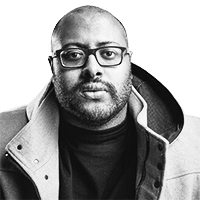Early into the 1980 film Fame, Shirley Mulholland auditions for New York City’s High School of the Performing Arts with her best friend LeRoy Johnson. LeRoy, hardly interested in dancing, effortlessly makes it into the school while Shirley is let go after her first round. She rages at him in the stairwell after learning the news, shouting, “Fuck you LeRoy! This was my audition, remember?” The actress, Carol Massenburg, has no other credits listed to her name but that scene perfectly encapsulates the blood, sweat, and tears students shed when trying to get into the highly competitive school now known as Fiorello H. LaGuardia High School.
That scene echoed in my mind as I watched The Rachel Divide, the new Netflix documentary which screened Monday night at the Tribeca Film Festival in New York. There have been many words written about Rachel Dolezal, the infamous white woman who has pretended to be black for what seems like a century or maybe that’s just how long my headache feels. I did not think words were necessary for this woman after the writer Ijeoma Oluo profiled Dolezal in The Stranger last year.
Oluo wrote of exhaustion with the need to keep covering this woman. The media’s obsession with her. The relentless need to cover everything she does because people will read it or because we have decided people will read it, I’m not sure which is the chicken or the egg at this point. Dolezal appears and a weary black journalist finds themselves in the position of saying something new about her. Something profound. Because to write about Dolezal as a black person means that you must offer some type of new insight because otherwise, why are you covering this mundane, basic white woman who hasn’t improved upon the confidence game since Victor Hugo’s Monsieur and Madame Thénardier?
Of Dolezal, Oluo wrote what I hoped would be the final nail in this scamtress’ coffin: “Dolezal is simply a white woman who cannot help but center herself in all that she does—including her fight for racial justice. And if racial justice doesn’t center her, she will redefine race itself in order to make that happen. It is a bit extreme, but it is in no way new for white people to take what they want from other cultures in the name of love and respect, while distorting or discarding the remainder of that culture for their comfort. What else is National Geographic but a long history of this practice.”
But then there’s The Rachel Divide, which I watched and looked for any new insight into this woman’s life. Maybe she’d changed. Maybe she realized that referring to herself as “transracial” was an insult to transgender people. Maybe she realized that we aren’t all “one race” and that by deciding she’s black, she didn’t somehow awake with centuries of black history infused into her skin, her upbringing, or how the world sees her. Shocker. There is none.
If anything, The Rachel Divide highlights how many lives Dolezal has obliterated in her need to be centered in oppression. She’s not seeking fame, per se—she’s not Shirley Mulholland—but she is seeking to be the most oppressed person in the world. She’s the reincarnation of Penelope Pitstop. When Dolezal’s scam was discovered, she didn’t go quietly into that good night, she continued to pop up on Twitter, write a book that flopped—in one scene, her white male co-writer tells her she “really nailed” the experience of being a black woman which, shut the fuck up—and continued to insist that she was now a victim of a witch hunt, of America’s unwillingness to accept progress.
There’s more than one scene in The Rachel Divide where she laments people following her in public and taking photos and videos of her—which, no shit, you’re surrounded by a documentary film crew. I used to snap photos of every college student I saw with cameras following them back in the early 2000s because I assumed they were members of The Real World. Dolezal has sob stories about not being able to get a job, because there are no African studies or African-centric jobs available in Spokane. She can’t get any other job because of her name. Here’s an idea: Change your damn name. Dolezal wants to be the freak that everyone stares at, but she wants to be Quasimodo. She could move to Los Angeles and probably get a job writing on Roseanne at this point, but that wouldn’t fit into her narrative of oppression.
The saddest aspect of this documentary is watching how her two sons are tortured by their association with her. How the documentary disgusts them. How they want to get away from her as soon as possible. Perhaps the most interesting addition to the film are interviews with black women who used to interact with Dolezal, who talk about how her scams have irrevocably damaged the rhetoric surrounding race in America. With a scammer weeded out of their midst, it’s an uphill battle for respect or acknowledgement of actual racial grievances for their chapter of the NAACP. It’s a little like what the presidency will be whenever Trump leaves.
Dolezal gives birth to a newborn in the film and changes her name to Nkechi Amare Diallo which means “gift of God” in a West African language because she still doesn’t get it. She’s still searching for relevance, for a new way for us to notice her and take her down, so that she can get back up again with blood seeping from her palms as if stigmata were real. Her book flopped and I pray this documentary flops too and interest in her utterly boring and self-victimizing story fades away, lest I ever have to write about this woman again.





